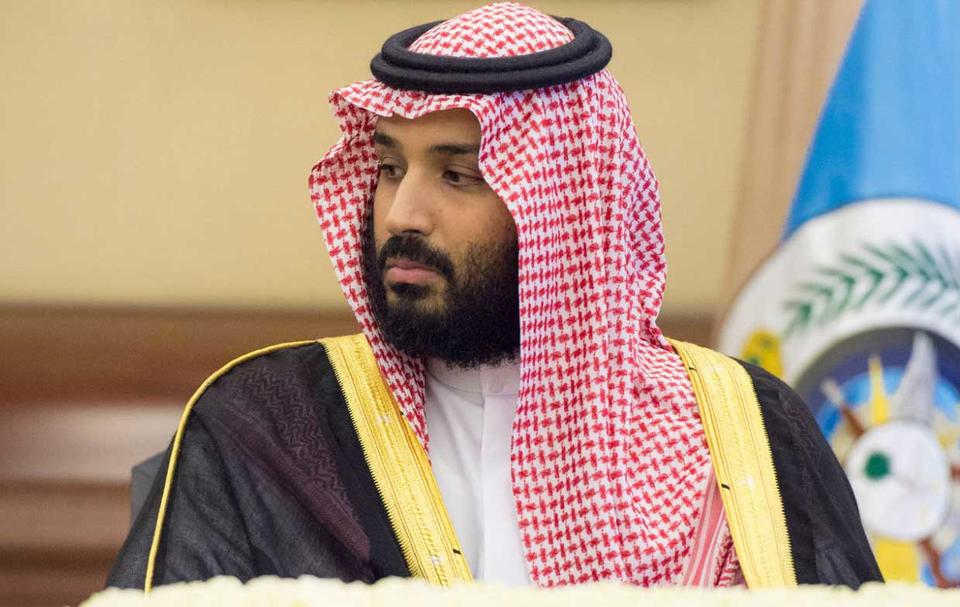Following his September announcement that Saudi Arabia’s driving ban on women will be lifted in 2018, Crown Prince Mohammed bin Salman this week unveiled two new measures that are part of his Vision 2030 for Saudi Arabia: the country will allow women to enter sport stadiums and it will build “NEOM,” a $500 billion mega-city near the Red Sea. These modernizing efforts seem in accordance to Prince Mohammed’s desires to erase extremist ideologies and return to “a more moderate Islam,” but they clash with the wave of arrests that have swept the country in the past months as well as the country’s egregious record on women’s rights.
Crown Prince Mohammed’s Saudi Vision 2030 is a plan to reduce Saudi Arabia’s dependence on oil by diversifying its economy, while developing public service sectors such as education, infrastructure, recreation, and tourism. The most reported-on policy change is the intention of Saudi authorities to let women drive. This development comes after a more than 20 year long fight by Saudi female activists against statements by religious figures who claimed, for example, that allowing women to drive would cause a breakdown in morality and the Saudi family structure. Women’s freedom has now been further broadened by allowing women to sit in the “family section” – the term used by the authorities to refer to public spaces that accommodate women – of three stadiums in Riyadh, Jeddah and Dammam. The latest announcement by the Crown Prince in an effort to build a more inclusive and diversified Saudi Arabia is “NEOM,” a 10,231 square miles city powered entirely by renewable energy, offering services that are 100 percent fully automated and that will operate independently from the “existing governmental framework.” Critics have pointed out that these reforms are nothing more than a marketing campaign to burnish the kingdom’s international image while it conducts military operations in Yemen, that have been accused of amounting to war crimes, and the widespread persecution of domestic dissident voices.
During September 2017, Saudi authorities arrested at least 16 people deemed to be critical towards the Crown Prince. The detainees included prominent religious figures, writers, journalists, academics, and activists like Abdulaziz al-Shubaily and Issa al-Hamid, who are founding members of the Saudi Civil and Political Rights Association (ACPRA) and prominent human rights defenders. The common thread is that they had all advocated for mild political changes in the kingdom. Meanwhile, clerics close to the Crown Prince and members of the Council of Senior Scholars (“Ulama”) continue to impose a monolithic approach to Islam in the country that discriminates against other faiths, and advocate turning away from changes towards democracy, secularism, or a more inclusive Islam. More recently, in early October 2017, Saudi officials arrested 22 individuals under charges of “inciting against public order” on social media, and detained another 24 for “promoting lies and exaggerations on social networking sites.”
Saudi Arabia’s historic decision to end the de facto driving ban on women and allow them to attend sport stadiums may be explained as an economic issue rather than a democratic measure meant to create some semblance of equal rights among the kingdom’s citizens. Crown Prince Mohammed has made clear his intention to reduce the number of expatriates working in Saudi Arabia, who yearly transfer over $40.5 billion to their home countries. Incorporating women to the work force, and allowing them to drive, may be one of Saudi Arabia’s few options to achieve its 2030 objectives and replacing its more than 11 million foreign workers. Many Saudi women have completed graduate and post-graduate studies in Saudi Arabia and at foreign universities, and need jobs. Similarly, Saudi families could save up to $1000 a month if they dismiss their drivers, who are usually expats.
However, despite these new opportunities for women, their situation in the Gulf country remains that of generalized discrimination. Saudi women are still subjected to the guardianship system, which requires them to obtain authorization from a male figure, usually husband or father, for common activities such as attending higher education or traveling. They also face discrimination in many laws and in custom. For example, women are prevented from passing their nationality to their children.
Saudi Arabia’s modernization through Saudi Vision 2030 and the advances on women’s freedom seem to respond to both a marketing campaign attempting to counteract the country’s image in Yemen, and the impact of the oil price in its economy. Unfortunately, the country is still strongly influenced by conservative voices and is far from being the moderate and inclusive society the Crown Prince envisions. If Crown Prince Mohammed bin Salman wishes to direct the country towards substantial reforms, he must immediately put an end to the persecution of dissenting voices and ease restrictions on freedom of speech, as well as promote real equality between Saudi women and men.
Juan Carmelo Rodríguez Melián is an Advocacy Intern at ADHRB.





